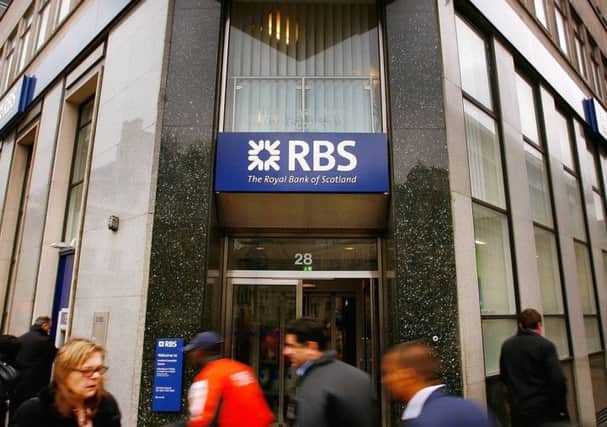Banks in dock for poor advice about savings cover


The consumer group’s team of researchers posed as new customers to ask 13 banks and building societies some basic questions about how the Financial Services Compensation Scheme (FSCS) works. Under the scheme, up to £85,000 of someone’s savings are protected if their provider goes under.
Researchers told the banks and building socities they had £100,000 to deposit into an account. But out of 156 anonymous calls made to 13 providers, not one member of staff gave an unprompted warning that £15,000 of this would not be protected in the event of a collapse.
Advertisement
Hide AdAdvertisement
Hide AdThe 13 providers contacted were HSBC, Lloyds Bank, Nationwide Building Society, Barclays, Santander, the Co-operative Bank, First Direct, Royal Bank of Scotland, NatWest, Bank of Scotland, Halifax, Britannia Building Society and Yorkshire Building Society.
Researchers asked specifically about savings protection limits and found staff at Yorkshire Building Society and Halifax were the only ones able to give the correct answer each time they were asked.
One NatWest employee told a researcher: “I imagine it’s like PPI. The bank wouldn’t have anything to do with anything like that.”
Nearly two years ago, rules came into force which mean banks, building societies and credit unions must prominently display stickers or posters in their branches to help raise consumer awareness of compensation levels.
Which? executive director Richard Lloyd said: “It is inexcusable that bank staff can’t give customers basic information about the compensation scheme if their bank goes bust.
“In the event of a collapse, this bad advice could cost people many thousands of pounds from their life savings. We hope this is a wake-up call to the banks that they need to improve staff training.”
The £85,000 limit applies per banking authorisation rather than per banking brand, so if you have savings with more than one member of the same banking group, your cover may be more limited, but this is not always the case.
For example, Which? highlighted that Co-operative Bank, Britannia and Smile shared the same authorisation, but RBS and NatWest, which are both part of the RBS banking group, have separate authorisations.
Advertisement
Hide AdAdvertisement
Hide AdFor joint accounts, the savings compensation limit doubles to £170,000.
Which? argues FSCS protection rules would be easier to understand if they applied per individual brand. Its researchers asked bank and building society staff if having savings elsewhere affected levels of protection and found that “overall, the responses were poor”.
The British Bankers’ Association said it was disappointed at the findings.